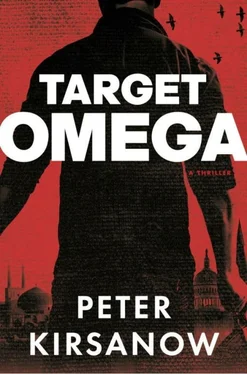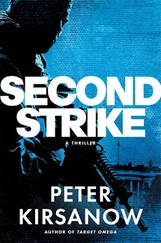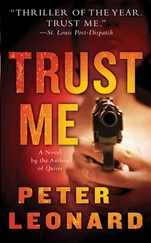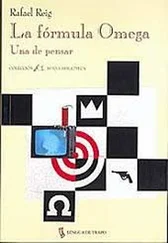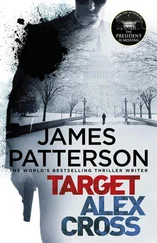Those present — Defense Secretary Douglas Merritt, Chairman of the Joint Chiefs Robert Taylor, CIA Deputy Director John Kessler, Director of National Intelligence Joseph Antonetti, Secretary of Homeland Security Susan Cruz, Secretary of State Ted Lawrence, and Chief of Staff Iris Cho — were already on heightened alert. Not only were things unraveling in the Middle East, but less than an hour earlier the USS Texas, a Virginia-class nuclear submarine, had detected up to a dozen Russian subs approximately three hundred miles east of the northernmost tip of Maine. Hearing the coldly analytical national security advisor refer to the end of America did little to alleviate the anxiety in the room.
The president was terse. “Jim, explain. What does that mean?”
“Mr. President,” Brandt began. “It’s our assessment that we’re going to be hit with an EMP attack.”
There was some stirring among the attendees as Brandt paused, anticipating a series of questions. None came, everyone waiting for the president, who was looking at Director of National Intelligence Joseph Antonetti for concurrence or disagreement. The DNI, like all the others in the room, appeared dumbstruck.
Marshall didn’t know where to begin, so he simply asked, “Upon what do you base your assessment?”
“Several factors, Mr. President. But principally, information from Michael Garin.”
The room exploded with rapid-fire questions and expressions of astonishment. Brandt sat silently for several seconds until the president raised a hand, quieting the room. “Again, Jim. Explain,” the president directed.
“Mr. President, through back channels, Michael Garin has provided information to a member of my staff — information that I find credible — that an EMP attack will be launched on the US. Unfortunately, he doesn’t have particulars as to when, how, or by whom.”
“Why, then, do you find the information credible?”
“Primarily because Ari Singer was Garin’s source. But I concede, quite readily, that I’m biased. It somewhat fits my own assessment of the cooperation between the Russians and the Iranians.”
“When were you going to tell us you’ve been in touch with Garin?” Antonetti asked.
Marshall’s face grew dark. “Stow it, Joe. I’d ask you why your shop hasn’t been in touch with him. Or tracked him down. Or had any whiff of a possible EMP attack. That’s your job, isn’t it?”
The room fell utterly silent. The rebuke caused everyone but Marshall and Brandt to look down at the conference table like scolded schoolchildren.
“Who’s this Singer fellow?” Marshall asked.
“An Israeli intelligence agent, Mr. President,” Brandt replied.
Marshall looked back at the chastened Antonetti. The DNI, taking the cue that he had permission to speak, said, “He’s known to us, sir. Very reliable. If Singer told Garin the US is the target of an EMP attack, well, we should assume we’re the target of an EMP attack.”
Marshall stared vacantly at the opposite wall for a moment. Then he looked at Brandt and asked quietly, “So we don’t know who’s going to hit us or how much time we have?”
“Again, Mr. President, we don’t yet have those specifics, but based on everything that’s happened over the last few weeks, the most likely players are the Russians or Iranians. And given the nature of the threat, our operating premise must be that an attack could happen at any time.”
“Mr. President.” It was Secretary of State Ted Lawrence. “It’s simply implausible that the Russians would take such an action. We were engaged in a Cold War for nearly half a century. They wouldn’t dare strike us. Mutual assured destruction ensures that. Remember, they backed down in 1962.” The pompous secretary of state looked around. Forever concerned Brandt was being groomed for his job, he was determined not to let the upstart national security advisor upstage him. “And they’re comparatively weaker now than they were back then. They’d never risk it.”
Several heads around the table nodded in agreement. Marshall noted a skeptical look on the secretary of defense’s face. “What’s your take, Douglas?”
Douglas Merritt was Ted Lawrence’s opposite in almost every way. Whereas Lawrence was self-promoting and voluble, Merritt was self-effacing and measured.
“Mr. President, while I agree that the odds of the Russians launching a conventional nuclear strike against the US are prohibitive, what we’re talking about here isn’t at all conventional.”
Lawrence scowled. He detested Merritt. He detested being contradicted even more.
“It’s true,” Merritt continued, “that the Russians — and the Chinese, for that matter — will be deterred by the certainty of a devastating retaliatory strike. For decades both the US and the Russians have understood that a nuclear attack by one of us — one that killed millions on the other side — would prompt retaliation that would annihilate the other side. If they take out Chicago, we take out Saint Petersburg. If they take out New York City, we take out Moscow. Everyone knows this. We’ve gamed the scenarios a million times over. Each of us has standing retaliation protocols.”
“Your point, Douglas.”
The secretary of defense straightened. “Mr. President, an EMP attack wouldn’t kill anyone. At least not immediately. In fact, no one would even be injured. No cities would be incinerated, no farmlands scorched. Not a single building would be leveled. Quite frankly, Mr. President, we haven’t established an agreed retaliation protocol for these circumstances. Put simply, we haven’t been able to justify nuking Moscow and wiping out millions because something went boom and startled pigeons somewhere miles above Manhattan. I don’t mean to be flippant, sir. Those are just the facts.”
Marshall had an incredulous look on his face. “Do you mean to tell me that in the fifty-odd years we’ve been aware of the possibility of an EMP, we’ve never developed a damn response doctrine?”
“That’s correct, Mr. President,” Merritt said. “At least nothing formal or concrete. The idea, as I understand it, was that we needed to be flexible in our approach, not formulaic. Since an EMP itself wouldn’t kill anyone, a full-scale nuclear response would be wildly asymmetrical — escalating matters out of control. It would undoubtedly provoke a massive nuclear counterstrike.”
“There are also practical concerns, Mr. President,” Chief of Staff Cho piped up. “If the US were to inflict millions of casualties on a country just because that country caused our lights to go out, we’d be a pariah state. We’d be ostracized from the ranks of civilized nations. The world would unite against us. Treaties abrogated, boycotts, embargoes, sanctions.
“Not to mention the political upheaval domestically,” Cho continued. “A large segment of the American population thinks we shouldn’t have any nukes to begin with. They would go nothing short of berserk if we actually used one.”
“But the Russians don’t know our protocols, or lack thereof, to something that goes boom over Manhattan,” Marshall said. “They can’t be sure we won’t launch a full-scale military response. So how can they risk it?”
Antonetti spoke up. “On the contrary, Mr. President, they have a pretty good idea how we would or would not respond. We’d like to think they don’t, but just like us, they’ve run countless computer models on every conceivable military scenario. They’ve run psych ops scenarios. Plus, let’s face it, despite our best efforts, they’ve no doubt gotten regular intel on our protocols. After all, we’ve got theirs.”
Brandt cleared his throat and all eyes turned to him. “Mr. President, everything that’s been said is well considered. And even though I strongly disagree with Ted’s assertion that MAD would deter the Russians from launching an EMP, I don’t mean to diminish the consequences of such an attack.”
Читать дальше
